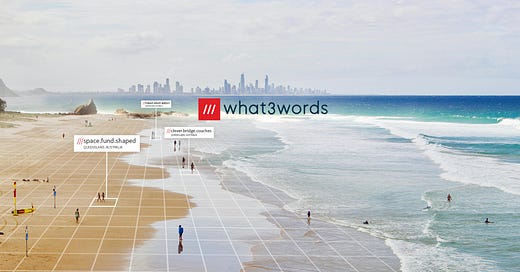The article I wrote about what3words was shaped as an explainer on how to go about improving technology from a senior developer’s point of view. If you haven’t heard of the service, the app effectively uses three simple words to pinpoint a grid position of 3m squares anywhere on the planet. So in theory, you can relay your position without knowing the geolocation floating point numbers. It is one of those ideas that seem pretty good, initially.
But it is not a solution that should be used under fire. The steady expression of unease with what3words has remained, due to multiple incidences of failure in emergency situations. More to the point, academic criticism explicitly exists, and is fairly clear. A recent example error is recorded in Wiltshire.
The problem comes about when the 3 words are repeated, either verbally or written down. In an emergency situation, the whole point of what3words is that it advocates the use of a “simpler” representation. But as you can see from the various types of errors, transcribing the triple address from a large set of simple words is a likely way to suffer errors from noise.
Now this would matter less if these types of errors were either autocorrected, or immediately produced illegal results somehow. If I forget my bank card pin and enter the wrong number, there is zero chance I will access a different account. Paired with a rough geographic location, many incorrect responses could be filtered out, but this is not part of the design.
My problem with the what3words solution has always been that there is no way to tell that two points are near each other just be looking at them. This seems absurd, and will surely make it difficult to spot over reporting of the same issue.
All these problems have been pointed out firmly over the last few years. The company itself, which clearly has financial issues, has a fiduciary duty to push its solution while combating criticism. And for non emergency use, it fares perfectly adequately - although the lack of height information can even cause issues in safe environments. What next?
This thread leads back to the problems with Generative AI, as well as the problems with Bitcoin. We continually find ourselves in a technical grey area because there exists no international oversight committee for digital innovations. It is left to each legal jurisdiction to work it out for themselves. We have recently heard about an AI safety institute, but that is a solution in search of a problem.
In the case of what3words, all that governments need to hear is “don’t promote this tech for emergency use”. This would help stop the problems without chilling research into the area.
So while I could agree that AI might need global oversight, I’d step back and look at the whole tech area. Maybe the UN could form something, but sadly we will probably have to wait for a disaster before that happens.





